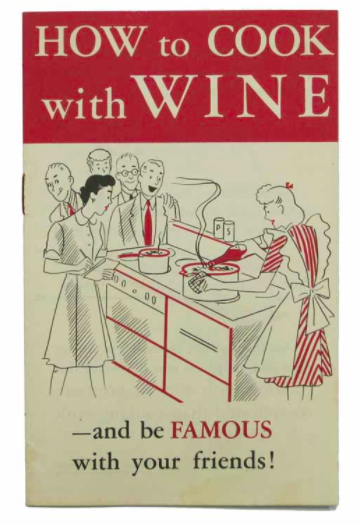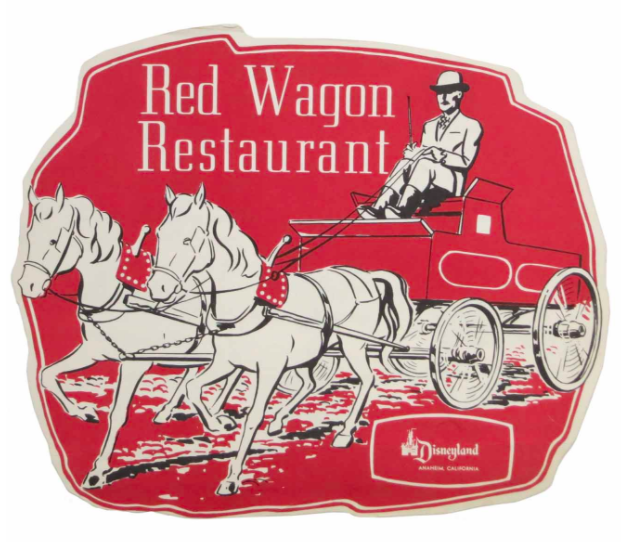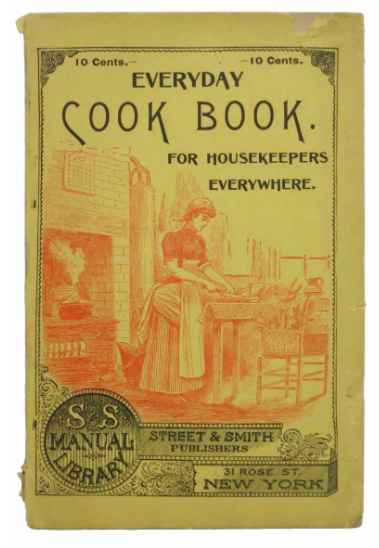We’re sure everyone is tired from their long holiday weekend (holidays are SO tiring, aren’t they?) so we thought we’d start you back into the groove with a short and sweet blog on why you ought to be looking at antiquarian cookery material, if you aren’t already. Ready? Sit back with a scone or some leftover pizza and enjoy these five reasons as to why you should look twice at cook books!
1. Antiquarian cookery – which can include anything from books of recipes (known back-in-the-day as “receipts”), menus with price lists, types of foods, cultures or food gathering processes, and even advertisements for household products used in the kitchen (which would often include recipes in their booklets, for good measure) – provide an important “historical and sociological background that goes far beyond the realm of cookbooks” (American Antiquarian Society). Cook books can provide vital information for historians and people studying changes in society throughout the decades. It is hard, for example, to compare the price of a car in 1950 to the price of a car in 2017. They are so different – safety features are more in place, CD/MP3 players… the ability to park itself? How could someone compare one to the other? However, you look at a recipe book or a menu and you can see the direct change ordering two eggs in 1930 versus ordering them in 2017! Or you can see the differences of society’s views on health and well-being by seeing how they ate and what they ate. Interesting, no?
2. Cookbooks can provide quite a bit more of history than you imagine. The American Cookery genre truly began in the 1700s, with the publication of The Compleat Housewife by William Parksin 1742. In America alone, there is almost 300 years worth of cook books to study! In the rest of the world? Well, let’s just say that the first cookery book and collection of recipes known to man is a work (falsely) attributed to Marcus Gavius Apicius (falsely, as the surviving copy dates from the 4th or 5th century AD, and Apicius lived in the 1st), a Roman gourmet and lover of food in the time of the Emperor Tiberius. Now how’s THAT for a genre to explore?
3. Often people are drawn to genres of antiquarian items that show an item or an endeavor that might otherwise be forgotten, as it’s practice is no longer in use. Take building an irrigation system, for example. People pore over texts of how early man developed irrigation without electricity or train tracks without bulldozers. Why should it be any different with cookery? There are plenty of recipes and routes of cooking that might otherwise be forgotten if it wasn’t for us taking interest in the history of cooking.

4. Antiquarian Cookery items are affordable! While of course you get your four or even five+ figure items (think The Compleat Housewife and earlier international works), for the most part cookery books are an available genre to most collectors. As AbeBooks.com tells you, “anyone interested in starting a [cookbook] collection can easily target the 1950s and 1960s – when America’s cooking culture exploded – without breaking the bank. By targeting these decades, collectible cookbooks can be snapped up for $50 or less.” Don’t believe me? Check out our own website – our cook books and menus can easily be nabbed for under $50. Which brings me to point #5…
5. We have them in stock!!! What? I said that it is “not JUST because we have them in stock”… Search our website for some kitchen-y keywords or browse our Potpourri section for some interesting finds and wonderful gift ideas. Enjoy!
Don’t miss our blog post from 2014 Gourmets, Drunks & a (Short) History of Cookery Books for a full and funny run of the history in this delicious field!
And here are some interesting reads in the world of collecting antiquarian cook books:
https://www.abebooks.com/books/cooking/collecting-cookbooks.shtml
http://www.onfoodandhistory.com/blog/antiquarian_cookery_books/
http://www.americanantiquarian.org/cookbooks.htm




